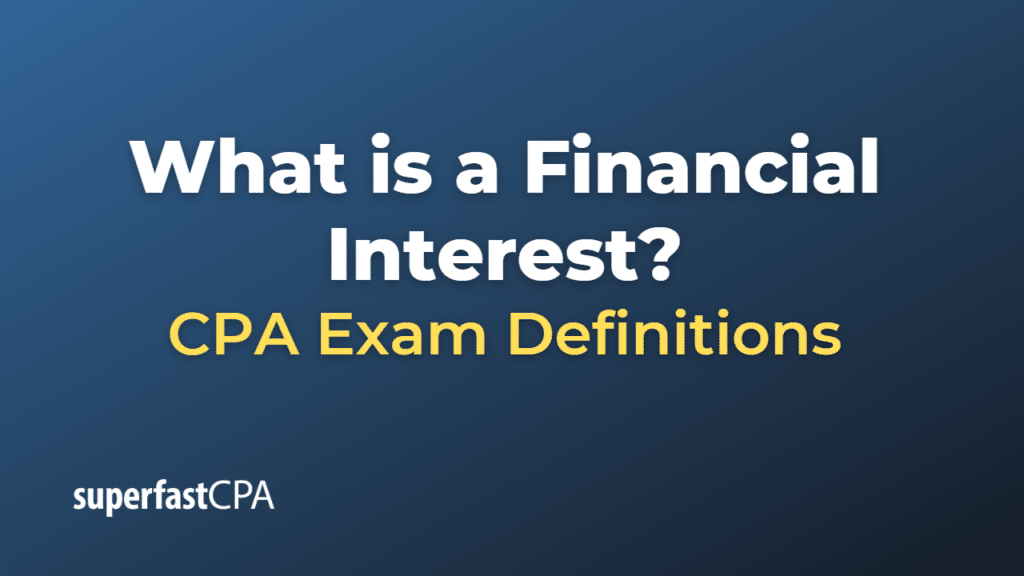Financial Interest
A financial interest can refer to either a person’s stake in a business or investment, or the potential for personal financial gain. This often comes from ownership of equity (such as shares in a company), a contract (such as an employment agreement that includes compensation), a trust, or any other financial arrangement.
When a person has a financial interest, they stand to profit from the successful operation of the entity in question. This can lead to potential conflicts of interest if the individual is in a position where they can influence the actions of the entity in a way that may not be in the best interests of the entity itself or other stakeholders.
Here are a few examples:
- Equity Ownership: If you own shares in a company, you have a financial interest in the company’s success because the value of your shares is likely to increase if the company does well.
- Debt Ownership: If you lend money to a business or individual (for instance, by buying a bond), you have a financial interest in the borrower’s financial stability because it affects their ability to pay back the debt.
- Employment: If your compensation includes performance-based bonuses or stock options, you have a financial interest in your employer’s success.
- Business Partnerships: If you’re part of a business partnership, you have a financial interest in the partnership’s success, as it can directly impact your personal financial situation.
- Conflicts of Interest: If you are a doctor who owns a stake in a pharmaceutical company, you have a financial interest that could potentially influence your professional judgment about which medications to prescribe.
It’s crucial to be aware of and transparent about financial interests, especially in situations where there might be conflicts of interest, to maintain trust and fairness in business dealings and professional relationships.
Example of a Financial Interest
Let’s consider two scenarios where the concept of financial interest is important:
- Equity Ownership: Let’s say you buy 100 shares of a company, ABC Corp., at $10 per share. This means you’ve invested $1,000 in the company. In this case, you have a financial interest in ABC Corp. If the company performs well, it might declare dividends, which are a portion of its profits distributed to shareholders. As a shareholder, you’ll receive a part of those dividends. Also, the company’s share price might increase, and if you decide to sell your shares at that point, you could make a profit. Hence, your financial interest is tied to the financial success of ABC Corp.
- Potential Conflict of Interest: Now imagine you’re a member of a city’s planning commission, which reviews and approves new construction projects. At the same time, you own a construction company. In this role, you have a financial interest in your own company’s success – the more projects your company gets, the more profit it makes. However, this situation can create a conflict of interest. As a planning commission member, you’re supposed to impartially review projects based on what’s best for the city, not for your own company. If your company bids on a project, you would need to disclose your financial interest and potentially recuse yourself from voting on that project to avoid a conflict of interest.
These examples highlight how financial interests work and why it’s crucial to manage them properly, especially in situations where there might be potential conflicts of interest.













